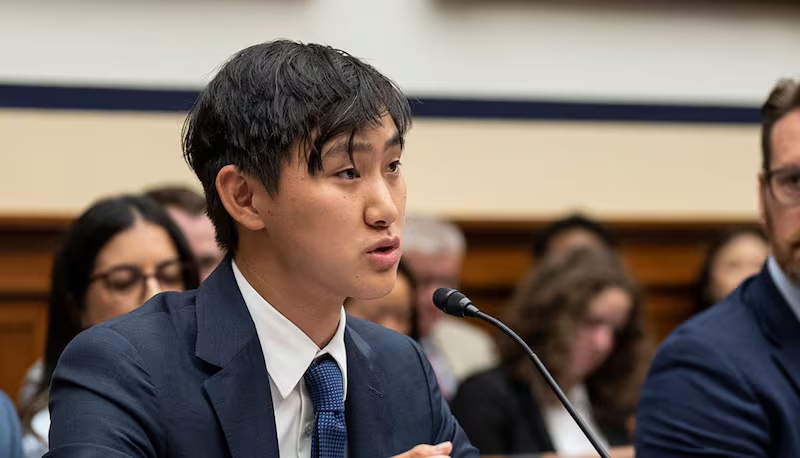Alexandr Wang, the founder of the prominent artificial intelligence technology company Scale AI, has taken a firm and unapologetic stance regarding his company’s contracts with the United States military. Unlike other tech firms that have faced criticism for their involvement in defense work, Wang views Scale AI’s contribution to national security as a fundamental “moral imperative.” His perspective is deeply rooted in his background and a clear view of the global landscape of AI development.

Scale AI’s Core Business: Data for AI
At its heart, Scale AI is an AI infrastructure company that provides what it describes as a “data-centric end-to-end solution.” Essentially, the company specializes in sourcing, curating, and labeling high-quality data needed to train complex artificial intelligence applications, particularly large language models and computer vision systems.
Reliable and well-organized training data is the foundational requirement for building effective AI, and Scale AI has positioned itself as a go-to expert in this crucial, often overlooked, step of AI development. Its client list includes some of the world’s largest technology giants, such as Meta, Microsoft, and OpenAI, demonstrating its central role in the broader AI ecosystem. In addition to these commercial clients, Scale AI also works directly with branches of the U.S. military, including the Air Force and the Army.
Wang’s Stance: A Moral Imperative
Alexandr Wang, who achieved the status of the world’s youngest self-made billionaire in 2022 at the age of 25, has publicly stated that he has no reservations about Scale AI’s work with defense entities. During a discussion held at the Center for Strategic and International Studies (CSIS) in Washington, he articulated his view:
“We’re at the brink of this incredibly powerful new technology, and the applications for national security are obvious,” Wang said. He firmly believes that it is going to be “imperative for the US to stay ahead” in applying AI for defense purposes. This perspective contrasts with the internal debates and public hesitations seen within some other parts of the tech industry regarding military contracts.
Roots of a Worldview: Los Alamos Influence
Wang directly links his strong conviction about working with the military to his upbringing in Los Alamos, New Mexico. This town is historically significant as the site where Robert Oppenheimer led the development of the atomic bomb as part of the Manhattan Project during the Second World War.
Growing up in this environment, steeped in the history of applying cutting-edge scientific and technological advancements to national security, deeply shaped Wang’s worldview. He stated that his Los Alamos upbringing led him to believe that it is a “moral imperative” for companies involved in AI development to collaborate with the military and defense sector.
Reinforced by Observation: A Visit to China
Wang’s belief was further solidified by a visit to China, where he observed firsthand the progress and applications of AI. Witnessing Chinese AI companies actively working on technologies like facial recognition and surveillance bolstered the entrepreneur’s conviction. He stated that at that moment, “it was clear for me that the US would need to have the highest quality human capital and the best companies focused on this problem,” referring specifically to the challenge of maintaining national security leadership in the age of AI. This experience reinforced his view that American technological strength, particularly in AI, must be leveraged for defense.
Industry Debate and Pushback
Working with the military has historically been a contentious issue within parts of the tech sector, particularly among employees concerned about the ethical implications of contributing to defense or potentially lethal technologies.
Scale AI has not been immune to this. Wang acknowledged that his decision to pivot the company towards defense research and contracts led to some fallout in the years since. This included initial pushback from some investors and the resignation of some employees who were uncomfortable with or feared potential stigma associated with working with the military.
The Case of Google and Project Maven
The debate surrounding tech companies and military AI was brought sharply into public view in 2018 with Google’s involvement in Project Maven. This Pentagon initiative aimed to use artificial intelligence to analyze drone footage and enhance military and weapons systems. Google’s participation drew significant criticism from employees and the public, with some accusing the company of profiting from potential conflicts.
The backlash ultimately led Google to decide not to renew its contract and to withdraw from aspects of the project. Wang’s decision to actively pursue the kind of military AI work that caused internal dissent and public relations issues at Google highlights his fundamentally different perspective on the role of AI companies in national security. Wang believes that “over time, rationality prevails,” adding that he views the AI applications for national security as “very obvious” and therefore necessary to assist with.
Recent Dissent: The Microsoft Example
The tension between tech companies and military/defense contracts remains relevant. In April, Microsoft’s head of artificial intelligence, Mustafa Suleyman, faced a public protest during an event on the Microsoft campus in Redmond, Washington. An employee interrupted his presentation, criticizing Microsoft for having contracts with the Israeli military, making emotional accusations regarding the use of AI.
This incident, which reportedly led to the employee’s termination along with others, underscores that internal dissent exists within large tech corporations regarding their defense sector involvement. Despite such visible instances of backlash against other companies, there are no signs that fears of similar demonstrations or negative reactions have influenced Alexandr Wang’s business decisions or his public stance.
AI Applications in Defense
Scale AI’s data labeling and curation services can support a wide range of AI applications relevant to defense and national security. These applications can include enhancing the capability of surveillance systems, such as using AI to automatically identify objects or activities in satellite imagery or drone footage.
AI can also be applied to optimize logistics and supply chains for military operations, predict maintenance needs for complex equipment, or potentially assist in complex decision-making processes by quickly analyzing vast amounts of information. Scale AI’s expertise in providing high-quality training data is crucial for developing and deploying reliable AI systems for these varied and critical defense use cases.
Wang’s Views on US-China AI Race
Alexandr Wang is also a vocal commentator on the broader global competition in AI development, particularly between the United States and China. He has not shied away from expressing warnings about China’s ambitions in this field. Wang has pointed out that the Chinese government significantly outspends the U.S. government, by a factor of approximately 10 times, on the implementation and adoption of AI technology.
He has urged increased American investment in AI to keep pace. Wang has also discussed the substantial energy requirements for AI infrastructure and cautioned against implementing regulations that could stifle AI innovation in the U.S., advocating instead for a regulatory framework that encourages technology companies to flourish domestically.
Furthermore, he has critiqued certain U.S. export policies that limit the shipment of advanced AI chips to various countries, while acknowledging the complexity of the issue. He has noted that the advancements being made by Chinese AI companies like DeepSeek and Huawei indicate that chip export restrictions can only go so far in slowing down foreign AI development.
Scale AI’s Growth and Founder’s Profile
Scale AI was founded by Alexandr Wang in 2016, shortly after he dropped out of MIT. He recognized early the growing need for high-quality labeled and managed data to fuel the rapid developments in AI, serving both technology companies and other large businesses. This proved to be a prescient decision.
As of 2025, the company has grown significantly, employing more than 900 individuals and having secured over $1.3 billion in financing, resulting in a valuation of $13.8 billion. Scale AI’s dual focus on both the defense and commercial sectors gives it a unique portfolio among AI companies globally.
Wang’s rapid ascent and prominent role in providing essential AI infrastructure have placed him among the most visible figures in the AI tech landscape, often mentioned alongside industry leaders like Nvidia’s Jensen Huang and OpenAI’s Sam Altman. His rising profile has led him to be featured on magazine covers, testify before Congress on AI-related matters, and become a sought-after voice for interviews on the future of AI and its intersection with national security.
His recent comments at CSIS about terms like “agentic warfare” and “lethality deterrence” reflect his direct engagement with the most complex and potentially sensitive applications of artificial intelligence in defense contexts.






